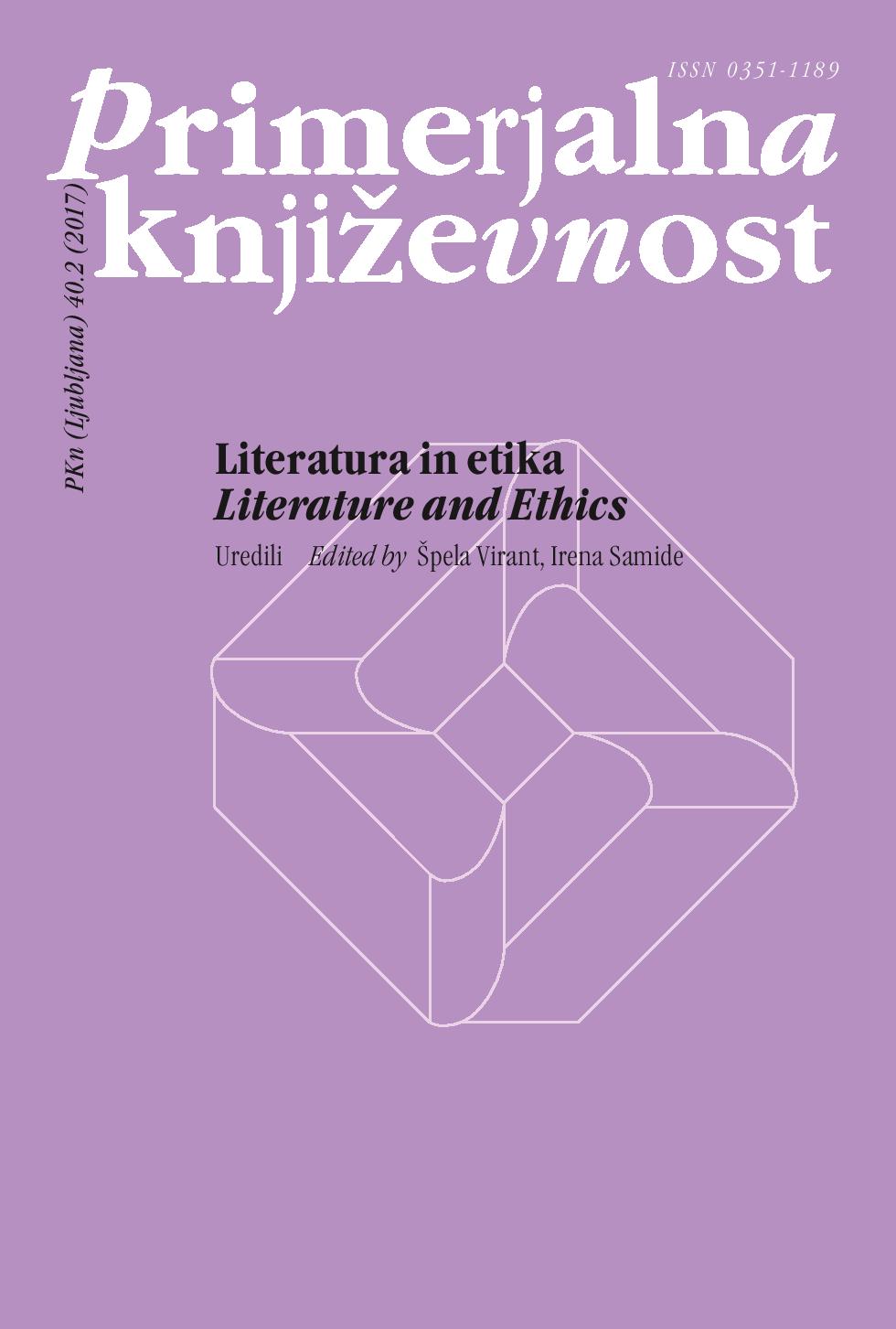Ethics and Aesthetics in Jonas Lüscher’s Barbarian Spring
Keywords:
literature and ethics, Swiss literature, Lüscher, Jonas, Barbarian Spring, ethics and aesthetics, didactic function, therapeutic function, social engagementAbstract
The article claims that Jonas Lüscher’s first novel titled Barbarian Spring follows a twofold program: it is a book with a strong moral and political message, and at the same time it is challenging literature’s possibility to incite action. Therefore, the book stands within the tradition of the Enlightenment when it comes to educating the reader, and in a larger sense, believing in the social value of Bildung; yet, it simultaneously shows the limits of the Enlightenment frame by decomposing the linkage between moral knowledge and actual behavior. To pursue this twofold goal, the book intertwines traditional aesthetic forms with modernist goals, and demonstrates in the end the limits of applicability and fertility of both approaches in today’s context and when – as the text suggests – consequentialist categories are applied. The text diagnoses the malfunctioning of the syncretism of Capitalism, Christianity, and the Enlightenment not only when it comes to issuing rules for moral behavior, but also when it comes to giving meaning to experience. Following this second possible purpose of literature – sense-making – the book examines literature’s therapeutic possibilities, when therapy means the integration in or the creation of a coherent interpretational scheme.References
Beck, Laura. “A Little Apart from the Center of Action: Postcolonial Space and the Role of Switzerland in Jonas Lüscher’s Novel The Barbarian Spring.” Web. 11 Dec 2016. www.mlecture.unibremen.de/ml/ index.php?option = com_mlplayer&template=ml2&mlid=2894.
C. H. Beck Webpage on Jonas Lüscher. Web. 11 Dec 2016. www.chbeck.de/trefferliste.aspx?action=author& author=140723067.
Department of Law. University of Lucerne. Web. 11 Dec 2016. www.unilu.ch/fakultaeten/rf/institute/kompetenzstelle-fuer-logistik-und-transportrecht-kolt/.
Department of Theology. University of Lucerne. Web. 11 Dec 2016. www.unilu.ch/fakultaeten/tf/institute/institut-fuer-juedisch-christliche-forschung-ijcf/.
Hofer-Krucker Valderrama, Stefan. “Die perpetuierte Katastrophe. Globalisierung und ihre Schattenseiten in Jonas Lüschers Frühling der Barbaren. Mit einigen literaturdidaktischen Anmerkungen.” Globalisierung – Natur – Zukunft erzählen. Aktuelle deutschsprachige Literatur für die Internationale Germanistik und das Fach Deutsch als Fremdsprache. Eds. Almut Hille, Sabine Jambon, and Marita Meyer. Munich: Lehmanns, 2015. 39–57.
Kleinpass, Susanne. “ Storytelling in Zeiten der Finanzkrise. Ein narratives Spiel mit novellentypischen Merkmalen in Jonas Lüschers Frühling der Barbaren.” Praxis Deutsch 255 (2016): 33–38.
Lepenies, Wolf. Melancholie und Gesellschaft. Frankfurt: Suhrkamp, 1969.
Lüscher, Jonas. Frühling der Barbaren. Munich: C. H. Beck, 2013.
– – –. Barbarian Spring. London: Haus Publishing, 2014.
– – –. “Literatur darf und kann fast alles.” Tagesanzeiger. Web. 11 Dec 2016. www.tagesanzeiger.ch/kultur/buecher/literatur-darf-und-kann-fast-alles/story/31948946.
Reidy, Julian. “‘Wie der Geist Zum Kamele Ward’: Zu einem Leitmotiv in Jonas Lüschers Frühling der Barbaren.” Poetik und Rhetorik des Barbarischen. Poétique et Rhétorique du Barbare. Eds. Melanie Rohner and Markus Winkler. Colloquium Helveticum 45 (2016): 157–173.
Speirs, Ronald. “The German Novel During the Third Reich.” The Cambridge Companion to the Modern German Novel. Ed. Graham Bartram. Cambridge: Cambridge University Press, 2004. 152–166.
Stamm, Peter. “Lieber Jonas Lüscher!” Tagesanzeiger. Web. 11 Dec 2016. www.tagesanzeiger.ch/kultur/buecher/lieber-jonas-luescher/story/18818536.
Taylor, Charles. Sources of the Self. The Making of the Modern Identity. Cambridge: Harvard University Press, 1989.


